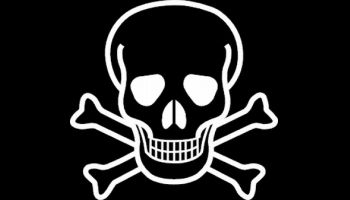Lost Revenue From Software Piracy Rising Rapidly

BSA estimates software piracy costs the software industry at least $59 billion worldwide
Software piracy jumped 14 percent worldwide, costing software companies about $59 billion (£36bn), according to the Business Software Alliance (BSA). However, a security firm said the total costs should be much higher.
The rate of software piracy hit 42 percent worldwide but is most concentrated in emerging markets, the BSA found in its annual report released May 12. The total has doubled since 2003, when the organisation released the first report.
One Licence Fits Many
 The most frequent kind of piracy occurs when a company purchases a single licence and then installs it on multiple computers, the report found. Some 60 percent of those surveyed in the report from the emerging markets said this was legal for home use and 47 percent said it was legal for work. Both statements are incorrect, according to BSA.
The most frequent kind of piracy occurs when a company purchases a single licence and then installs it on multiple computers, the report found. Some 60 percent of those surveyed in the report from the emerging markets said this was legal for home use and 47 percent said it was legal for work. Both statements are incorrect, according to BSA.
“The software industry is being robbed blind,” said Robert Holleyman, BSA president and CEO.
Just like PC sales, software piracy is growing steadily in emerging markets. While emerging economies accounted for half of the global shipments of new computers in 2010, paid licences were less than 20 percent of worldwide sales, according to BSA.
The “rates of theft are completely out of control”, Holleyman said.
However, security vendor V i Labs warned that the actual economic cost could be “significantly higher” than BSA’s estimate. V i Labs collects software piracy data for its customers and has access to real-world statistics, Victor DeMarines, vice president of products for the company, told eWEEK. DeMarines stopped short of saying the BSA report was wrong, insisting that the BSA report just “used a different methodology”.
BSA Underestimating
Software vendors use V i Labs’s CodeArmor Intelligence to prevent and track down pirated versions of their applications. Based on data collected by its software, the company knows that pirated software has already cost its own customers $1 billion (£614m) in lost revenue, according to DeMarines. Considering the small sample size, DeMarines said it was more likely that BSA was underestimating the global impact.
“Our Piracy Pipeline comes from real use of unlicensed software, and the fact that our customers [are] continually growing the number of infringing users [they are finding] suggests that the $1 billion that has been identified is just the beginning,” DeMarines said.
DeMarines estimated that the same customers would see losses of more than $4 billion (£2.5bn) within the next three years.
Ignorance Is Blitz
The irony was that many users did not realise what they were doing is wrong, either because they do not realise the software is pirated or because they do not understand the impact of using such applications, according to Holleyman.
“There’s an awareness gap where many people don’t even understand that they’re stealing software,” BSA vice-president Matt Reid told the AFP.
More than half of the respondents, or 59 percent, said intellectual property rights benefit local economies and over 80 percent said legal software was more secure and reliable than pirated versions.
DeMarines noted that the people who are creating cracked versions of software are also not in it to make money. There is a “culture of sharing”, where people distribute the software for free because they do not believe in licensing or feel everyone should have open access, DeMarines said.
Once cracked, the software spreads on a very organised system and is easily found on search engines devoted to finding pirated software. Major search engines like Google and Bing also pick up those links eventually. It is a large volume business, DeMarines said.
The BSA represents the entire software industry including independent software vendors and large companies such as Apple, Microsoft and Adobe Systems. The Global Sofware Piracy Study relied on information obtained from Ipsos and IDC to calculate some of the numbers in the report.
Ipsos surveyed more than 15,000 business and consumer PC users and included commercial, open-source and mixed-source programs such as operating systems, games and business applications. Servers were not included. BSA estimated its $59 billion price tag using IDC’s software reports for 80 countries.